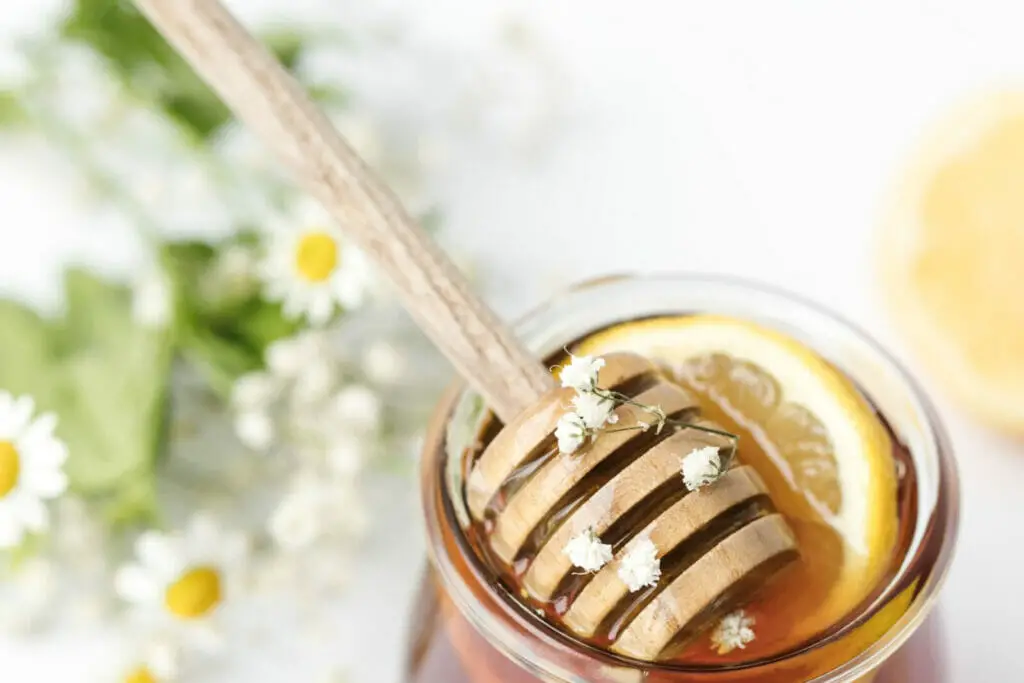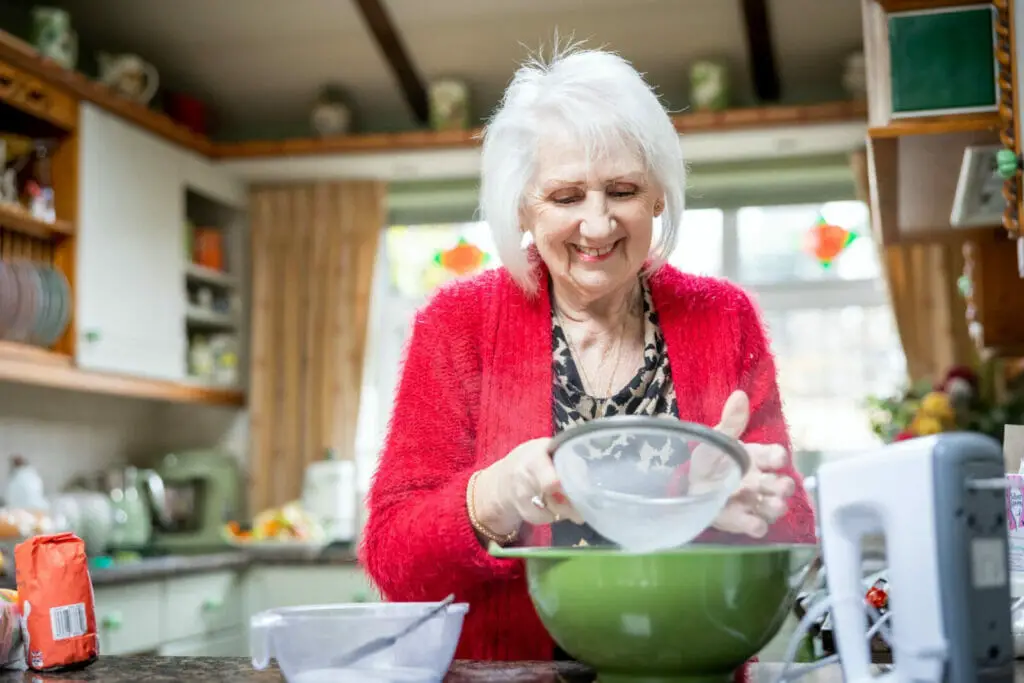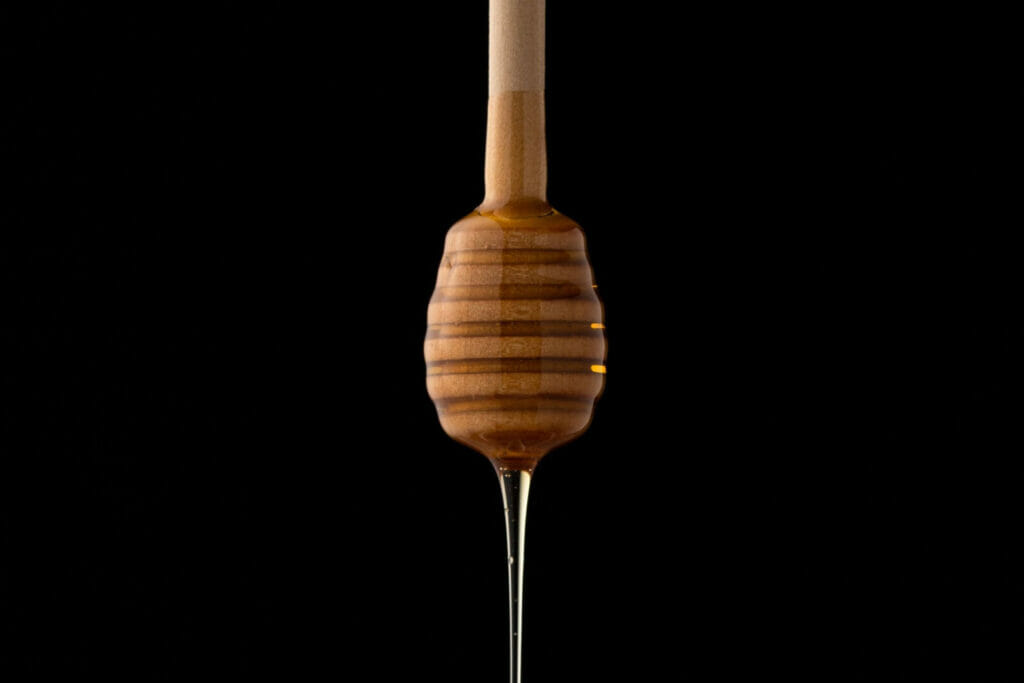
Raw honey has been a staple in human diets for centuries, praised for its natural sweetness and numerous health benefits. As people age, they may wonder if raw honey is safe for the elderly and if they can still reap its benefits. This article aims to address this curiosity, exploring the topic and providing insights on raw honey’s unique properties.
For the elderly, consuming raw honey can offer a variety of advantages on their health and well-being. Among the numerous benefits are its antimicrobial properties, which can aid in wound healing and reducing infections. Additionally, raw honey serves as a natural source of antioxidants, which contribute to reducing inflammation and boosting the immune system. It’s important to note, however, that raw honey should be consumed in moderation by the elderly, and it is crucial to consult a medical professional before incorporating it into their diet.
As we delve into the 10 health benefits of raw honey for the elderly, it’s essential to understand its composition and pertinent safety considerations. Understanding the nuances of raw honey will help ensure that the elderly can safely enjoy this natural sweetener and benefit from its many health-promoting properties.
Is Raw Honey Safe for the Elderly?
Safety Concerns
Raw honey is a natural sweetener that offers several health benefits, especially for the elderly. However, there are some safety concerns when it comes to raw honey consumption. It is essential to be aware of these potential risks, particularly for those with weakened immune systems.
Botulism Risks
One notable risk associated with raw honey is the possible presence of Clostridium botulinum spores. These spores can cause botulism, a dangerous form of food poisoning. The elderly, who often have weaker immune systems, may be more susceptible to botulism. To minimize this risk, it is recommended that elderly individuals consume pasteurized honey, which undergoes a heating process to destroy harmful bacteria and spores.
Allergy Considerations
For some people, raw honey may trigger allergic reactions. Although rare, elderly individuals who suffer from bee pollen or other pollen allergies may be at risk. Symptoms can range from mild, such as itchiness or swelling, to severe, including difficulty breathing. It is crucial for the elderly and their caregivers to be aware of any potential allergies and to seek medical attention immediately if any adverse reactions occur after consuming raw honey.
Key Health Benefits
Antioxidant Properties
Raw honey is a rich source of antioxidants, including phenolic compounds such as flavonoids. Antioxidants are essential in protecting the body from cellular damage caused by free radicals. The elderly can particularly benefit from this, as it can help in reducing the risk of diseases linked to aging, such as heart conditions and cognitive decline.
Anti-Inflammatory Effects
Inflammation plays a role in various chronic health issues such as arthritis and heart disease. Raw honey exhibits anti-inflammatory properties, which can help alleviate pain and swelling in the elderly. Its anti-inflammatory effects can be attributed to the presence of vitamins, minerals, and other compounds that contribute to reducing inflammation.
Antibacterial and Antifungal Abilities
One of the most notable health benefits of raw honey is its antibacterial and antifungal properties. Manuka honey, a specific type of raw honey, has been widely recognized for its unique ability to combat infections. The presence of specific compounds, such as hydrogen peroxide, methylglyoxal, and bee defensin-1, gives raw honey its antimicrobial properties. These properties can be especially beneficial for elderly individuals with weakened immune systems.
Immune System Support
Raw honey contains vitamins, minerals, and other nutrients like zinc that can contribute to a healthy immune system. A strong immune system is crucial for the elderly, as it helps their body fight off diseases and infections. The antibacterial, antifungal, and antioxidant properties of raw honey further support immune system function. By including raw honey into their diet, elderly people can improve their overall immune system health.
Potential Risks and Downsides
Sugar Content and Diabetes
Raw honey contains natural sugars, including fructose, which can impact blood sugar levels. While it has a lower glycemic index than table sugar, it can still cause a spike in blood sugar levels, posing potential risks for individuals with diabetes. Moderation is crucial for the elderly with diabetes to prevent exacerbation of the condition.
Digestive Issues
Consuming raw honey can occasionally lead to digestive issues, particularly for the elderly who may have a sensitive digestive system. Overconsumption might result in diarrhea or constipation. It is important for seniors to consume raw honey in moderate amounts to avoid any adverse effects on digestion.
Impurities in Raw Honey
Unlike processed honey, raw honey may contain pollen and bee pollen, which can cause allergies or reactions for some individuals. The elderly, who may have weakened immune systems, could be more susceptible to infections from impurities found in raw honey. It is essential for seniors to be cautious and aware of potential contaminants in raw honey.
Practical Uses of Raw Honey

Sweetening Foods and Beverages
Raw honey is an excellent natural sweetener that can be used to enhance the taste of various foods and beverages. Due to its unprocessed nature, it retains more nutrients and beneficial compounds compared to refined sugars. One popular way to use raw honey is as a sweetener in tea, providing a healthier alternative to sugar.
Wound Healing
Known for its antibacterial and antifungal properties, raw honey can be beneficial in promoting wound healing. Applying a thin layer of raw honey to minor cuts, burns, or abrasions can help keep the area clean and reduce inflammation. It is important, however, to only use high-quality honey for this purpose as its effectiveness depends on its purity.
Relieving Nighttime Cough and Sore Throat
Raw honey has been used for centuries to soothe coughs and sore throats, particularly during nighttime. Thanks to its viscous texture, it coats the throat and reduces irritation, providing temporary relief from discomfort. A spoonful of raw honey before bed may help alleviate coughing and soothe a sore throat. However, it is important to note that honey should not be given to children under the age of one due to the risk of infant botulism.
Choosing the Right Honey
When selecting honey for the elderly, it’s crucial to choose the right type of honey to ensure its safety and health benefits. This section will guide you through some key factors to consider when choosing honey.
Local vs. Manuka Honey
Local honey is produced in your region and can be found in farmer’s markets or from local beekeepers. Consuming local honey helps support the local bee population and may provide relief from seasonal allergies due to exposure to local pollen.
Manuka honey originates from New Zealand and is known for its potent antibacterial properties. It may be beneficial in wound care, digestive health, and soothing sore throats. Though it can be more expensive, Manuka honey has earned a reputation for its health benefits.
Color and Flavor

Honey comes in various colors and flavors, depending on the flower source and nectar. Light-colored honey usually has a milder taste, while dark-colored honey has a more robust flavor. As an antioxidant source, darker honey tends to be higher in nutritional value. When looking for honey for the elderly, consider the individual’s taste preferences and nutritional needs.
Unfiltered vs. Processed Honey
Unfiltered honey is raw, preserving all of its natural nutrients like enzymes, vitamins, and minerals. This type of honey is generally recommended for the elderly due to its potential health benefits. However, if the elderly person has a compromised immune system, it’s best to consult with a healthcare professional before introducing raw honey into their diet.
Processed honey, on the other hand, undergoes various treatments like pasteurization, which can strip honey of some of its beneficial properties. While this type of honey still boasts some health benefits, it may not be as potent as raw, unfiltered honey.
By considering these factors when choosing honey, you can ensure a healthier and safer choice for the elderly. Honey is one a nature’s greatest inventions. The benefits of honey are many and a spoonful of honey a day can be a natural way to boost your overall health.
